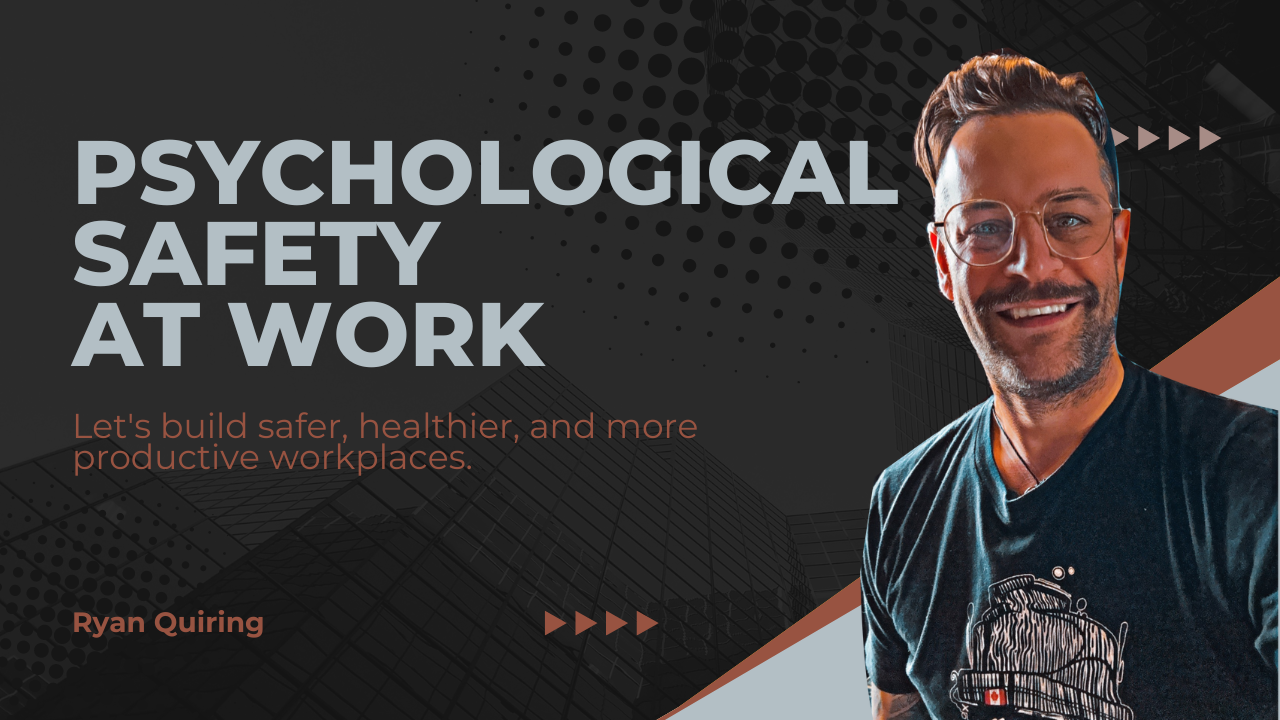I want to discuss something deeply personal yet universally relatable—the emotional impact of working in a psychologically safe environment.
As someone who’s experienced both toxic and nurturing workplaces, I can tell you firsthand that the difference is more than you could imagine. When your workplace can energize you, you can bring that energy into your personal life and objectively interpret situations.
Allow me to paint a picture. Imagine heading to work every day and feeling a sense of calm and excitement rather than dread. You’re excited about the day ahead, not anxious about potential conflicts or criticisms. This is the emotional baseline of a psychologically safe workplace and is transformative.
In a psychologically safe environment, you feel valued for who you are, not just for what you produce. There’s a discernible sense of belonging. You’re not frequently second-guessing yourself or filtering your views. Instead, you feel free to express your ideas, concerns, and mistakes without fear of judgment.
This feeling creates a deep sense of relief. The energy you once spent on self-protection can now be channelled into creativity, problem-solving, and collaboration. A weight has been lifted off your shoulders, allowing you to stand taller, think clearer, and reach higher.
But wait, it goes deeper than that. In a psychologically safe workplace, you experience a boost in self-esteem and self-worth. Your opinions are sought after and respected, reinforcing the belief that you have valuable contributions to make.
This validation isn’t just professionally satisfying—it’s emotionally nourishing. The ripple effect expands as you feel more secure and can extend that same courtesy to others. You become more empathetic, more willing to listen, and more supportive of your colleagues. Creating a virtuous cycle of positive interactions elevates the entire team’s emotional well-being.
In psychologically safe environments, failures and setbacks are also handled differently. Instead of feeling shame or fear, you’re more likely to approach challenges with curiosity and soundness. The shift to a growth mindset is quite liberating. It allows you to take risks, learn from mistakes, and continuously improve without fear of failure. Self-compassion falls in place due to external factors, such as viewing events as data points rather than reprimands.
One of the emotional impacts is your sense of purpose and engagement. You can fully immerse yourself in your work when you’re not actively protecting yourself. You feel connected to your organization’s mission and the impact of your role. This alignment between your work and values leads to a deep sense of fulfillment and motivation, which follows well beyond a paycheck.
It’s important to note that working in a psychologically safe environment doesn’t mean the absence of challenges or difficulty. It means that you feel equipped and supported to handle these challenges. You can trust that you are able to voice your concerns, ask for help when needed, and work through conflicts constructively. There is no blame or finger-pointing; leadership recognizes the environment that has been created, and together, solutions can be implemented.
The cumulative effect of all these positive experiences is profound. It extends beyond the workplace, positively impacting your life and overall well-being. You’ll feel more energized, optimistic, and capable of handling life’s ups and downs.
As we reflect on the emotional impact of psychological safety, it becomes clear that it is essential for our emotional health and professional growth. We must create environments where people genuinely thrive.
So, I challenge you to think about your workplace. How does it make you feel? What can you do to foster more psychological safety if you’re in a leadership position? And if you’re not experiencing this kind of environment, how can you advocate for change?
We spend a significant portion of our lives at work. We deserve spaces that promote our emotional well-being, validate our worth, and empower us to be our best selves. By prioritizing psychological safety, we’re fostering happier, healthier, and more fulfilled individuals. And that is the accurate measure of success in any organization.
